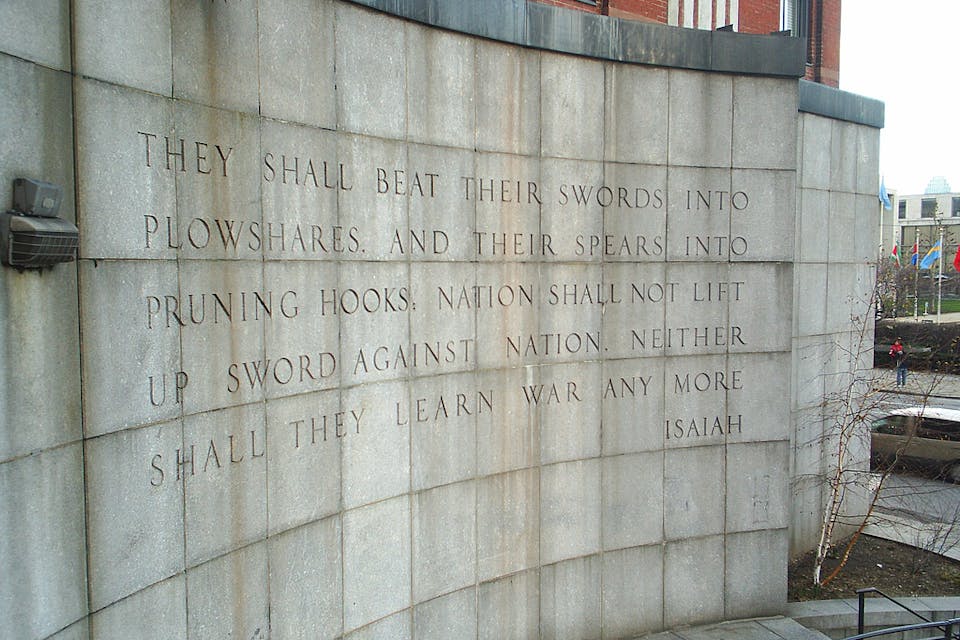
May 1, 2019
Misunderstanding the Drops of Wine
By Rabbi Meir SoloveichikWhy do we remove drops of wine at the seder?
On First Avenue in New York City, across the street from the United Nations General Assembly, sits what is known as the Isaiah Wall. Inscribed on the structure, in large, ornate letters, are the words of the Hebrew prophet who gave the wall its name: “They shall beat their swords into plowshares, and their spears into pruning hooks; nation shall not lift up sword against nation, neither shall they learn war any more.” These sentences conclude Isaiah’s prediction of the “end of days,” when all the nations of the world will recognize the God of Jacob and join Israel in serving Him in Jerusalem. The verse reflects one of the most sweeping, audacious, and universalistic beliefs in Judaism, and its presence on the Upper East Side, adorning the United Nations, cannot be seen as anything other than utterly inappropriate. For it is at the UN, more than at any other location on earth, where dictators are welcomed, tyrannical nations celebrated, and the peoples of the world gather to collectively deny the rights of the people of Israel and Israel’s historic connection to Jerusalem.
For those who recognize the incongruity of the verse’s location, the Isaiah Wall embodies an important reminder. While Judaism does indeed look forward to a time of universal peace, it also insists that this cannot come about without the defeat of evil. Jews have always looked forward to a time without war, but Jewish tradition also recognizes that at times we must give war a chance. Even as Isaiah looks forward to weaponry being rendered obsolete, the prophet Joel speaks of the exact opposite:
Proclaim ye this among the Gentiles; Prepare war, wake up the mighty men, let all the men of war draw near; let them come up: Beat your plowshares into swords and your pruning hooks into spears: let the weak say, I am strong.